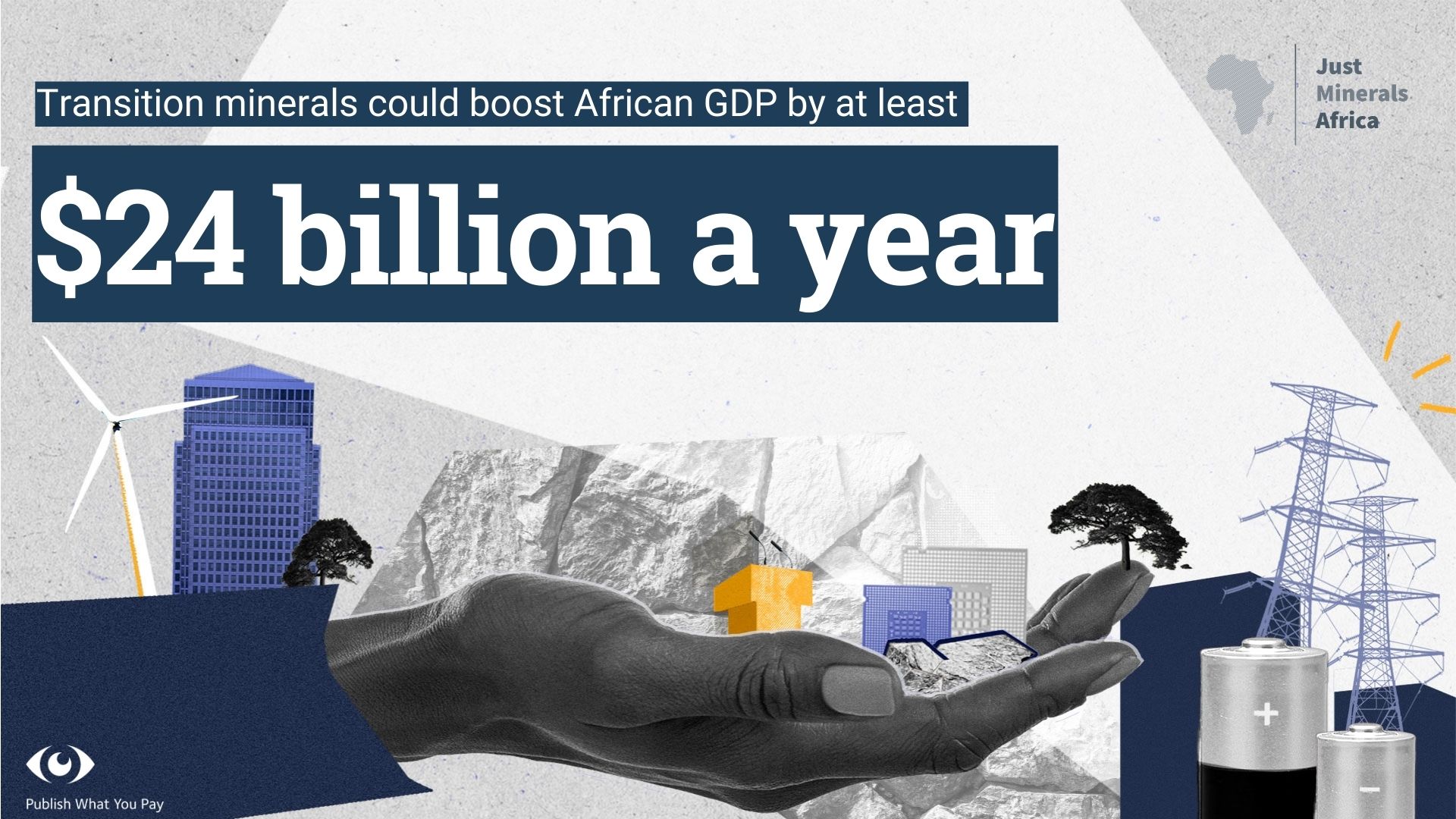The latest research from PWYP suggests that Africa could boost its GDP by at least $24 billion a year and create 2.3 million jobs through transition minerals.
African leaders need to come together and act urgently to ensure that the emerging transition minerals market is well-regulated, transparent, just and equitable.
Here you can download the main findings from the research in a shorter briefing.
Main findings:
> Industrial policies to promote trade in the materials needed for batteries, solar panels and other clean energy technologies could boost Africa’s GDP by at least $24bn a year and create at least an extra 2.3 million jobs on the continent.
> The vast majority of Africa’s transition minerals are destined for manufacturing industries outside the continent. Only 2% of the continent’s exports of energy transition minerals are destined for other African countries. Africa is currently stuck at the bottom of energy transition value chains while most of the profits are made elsewhere in the world.
> Though some countries in Africa do process transition minerals to some extent, the continent remains almost completely excluded from downstream and often more lucrative segments of value chains for these minerals, such as design, manufacturing, marketing and sales. This represents a major problem for the continent but African governments have the power to change the game.
> African countries can make the most of their transition minerals by adding value to them: transforming them into products that can then be exported at better prices, and/or using them to address Africa’s own development needs, including building clean and affordable energy systems.
> DRC, South Africa, Sudan, Zambia and Republic of Congo account for 90% of the continent’s current opportunities to increase export of processed and transformed mineral products. Madagascar, Egypt, Namibia, Morocco and Mozambique also have opportunities for hundreds of millions of dollars in additional annual exports.
> African countries should be strategic in deciding how to increase their participation in value chains. They should focus on specialising in the parts of the value chain in which they are most competitive, even if it means importing minerals from other countries, rather than seeing it as a necessity to retain the entire value chain of minerals within their own soil. Retaining value on the continent is possible through flexible and collaborative strategies among African countries.
> Through this approach, there is also potential for Africa to produce renewable energy technologies for fostering an equitable access to energy on the continent, using its own transition minerals. Regional economic cooperation and preferential trade agreements are key to ensure African countries can trade minerals amongst each other and become competitive in the renewable energy market.
> Mining has a huge human and environmental cost with devastating impacts, in particular for communities living in mining areas, Indigenous People, women, and rights defenders. No-go zones and safeguards must be put in place to protect ecosystems and the rights of affected populations, including a fair, ongoing process of Free, Prior and Informed Consent—the Indigenous People’s right to give and withdraw consent to mining on their lands.
> Value addition has to go hand in hand with strengthening accountability of the whole transition mineral value chain. We want to see resource-rich states adopt comprehensive national and regional laws for due diligence, public participation, and benefit-sharing. Investor-State Dispute Settlement (ISDS) mechanisms in Bilateral Investment Treaties undermine these efforts by allowing companies to challenge government actions aimed at protecting public interests, preventing these countries from implementing essential measures. Renegotiating such treaties are critical steps to empower states to implement regulations that ensure accountability in the transition mineral sector.
> We need a globally just energy transition that is truly transformative for mineral rich, poorer countries. Consumer regions must play a role in supporting these countries‘ ambitions to become more involved in value chains. Key development partners have promised to do so through “partnership agreements” like the EU’s Memoranda of Understanding with Namibia and Rwanda, and the MoUs the EU and US have with the DRC and Zambia. However, these promises are often contradicted by other policies undertaken by the same “development partners”. Consumer regions should not pressure African countries to abandon industrial policies that support domestic mineral processing and transformation. Instead, they should focus on fulfilling their financial and technology transfer commitments, fostering industrial capacity in partner countries, and bringing economic benefits to African citizens.











